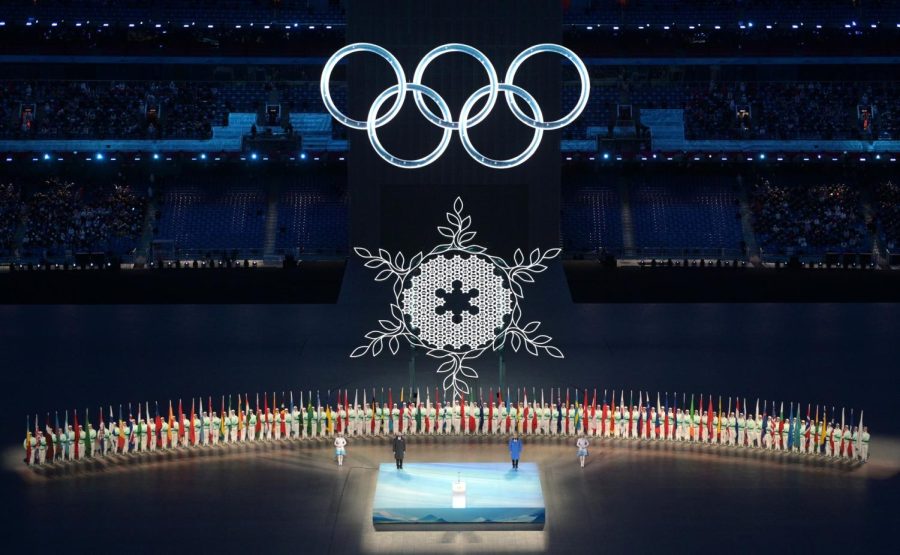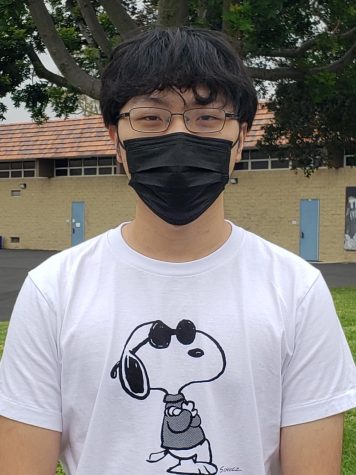Beijing Winter Olympics: A Time For Unity
February 9, 2022
*The opinions expressed within the content are solely the author’s and do not reflect the opinions and beliefs of the website or its affiliates.*
“Beijing!”
On July 31, 2015, the President of the International Olympic Committee, Thomas Bach, announced at the 128th plenary session of the International Olympic Committee that Beijing and Zhangjiakou had won the right to host the 2022 Winter Olympics. Inside the venue, members of the Chinese delegation cheered and high-fived each other; outside the venue, many citizens spontaneously took to the streets to celebrate. The nomination of the Winter Olympics also makes Beijing the world’s first “Double Olympic City” to host both the Summer Olympics and the Winter Olympics.
As the world experiences new Covid-19 waves and tense geopolitical issues, such as the Russia-Ukraine conflict, a tense China-U.S relationship, and the Covid-19 pandemic, the Olympics are one of the only events that bring the world together in peaceful competition. Despite all the positives the Winter Olympics could bring to the world, some western countries decided to boycott the Winter Olympics over suspicion of humans rights issues surrounding the Uygur minority group, in which China is accused of “genocide.” Several countries such as the U.S, Canada and the U.K have made public statements to not send any government representatives to the opening and closing ceremonies. This is a massive mistake as the Olympics fosters and normalizes peaceful global exchanges across cultures and nations which could help ease economic and political tensions across nations. Therefore, a diplomatic boycott via the Olympics sends the wrong signal to a world that is in desperate need of collaboration and unity.
The “diplomatic boycott” of the Beijing Winter Olympics is nothing more than “a senseless and harmful gesture” according to IOC President Bach, who warned that politicization would threaten the future of the Olympic movement, a bond that promotes mutual understanding between people of all countries through sport. The Olympic Charter clearly states that the Olympic Movement is neither a political movement nor a religious activity, but rather a social and educational one (Olympic Charter). It is the goal of the Olympic Movement to maintain political neutrality, oppose the politicization of sports, overcome ideological and cultural differences, and reach a consensus among countries worldwide. Not long ago, the 76th United Nations General Assembly unanimously adopted the Olympic Truce Resolution for the Beijing Winter Olympics that was proposed by 173 member states and thus set a new record in the number of countries agreeing to the truce resolutions in recent Winter Olympics (Olympics). Therefore, governments around the world should take the Olympics as an opportunity to repair multilateral relationships and unite together against Covid-19.
Boycotting the Winter Olympics keeps the world divided and steals the spotlight from very deserving athletes around the world. The Olympics has built a platform for the world’s sportspeople and has become a grand festival for the world’s elite athletes every four years. In the gathering of the Olympics, athletes transcend the barriers of class, skin color, region, language, religion, and far more. The Olympics has created a platform for athletes from all over the world to respect and learn from each other, allowing them to reach their greatest potential under the guidance of the Olympic spirit of “faster, higher, stronger and more united.” Winter Olympic athletes have made countless efforts to come together and celebrate their abilities together in this long awaited competition, but those politicians who clamor for the Beijing Winter Olympics boycott turn a blind eye to their efforts and decide to oppose the spirit of the games and the athletes. Therefore, in addition to further dividing geopolitical boundaries, the boycott of the Winter Olympics has also robbed athletes of the opportunity to compete in a politically uncorrupted, intended way.
It is encouraging that democratic leaders are concerned about human rights issues and democracy worldwide and push for changes. It is also true that many innocent Uygurs were mistreated and subjected to indoctrination over a few extremist attempts to independence using violence. However, the wording of Uygur genocide as reason to boycott is a false exaggeration. According to the population census, “the population over in China’s Xinjiang province grew more than 18 percent over the last decade, and its population growth fell just behind the provinces of Zhejiang and Guangdong, as well as Tibet, which has the highest birth rate in the country” (SCMP). The statistics clearly showed no sign of genocide which means deliberate killing of a large number of ethnic group. The misleading media coverage and false wording should not be the reason to stop the world from enjoying the sports event to showcase the motto of the Beijing Olympic “together to a shared future.” Just as American-Chinese athlete Ailin Eileen Gu said in her gold medalist conference, “sports must be used to unite human beings, not divide us . . . all of us are here to hope that we can continue to expand the limits of human beings” (uschinapress).
In the midst of the pandemic and various geopolitical crises, the long-awaited Winter Olympics would undoubtedly provide leisure for people all around the world to unwind and celebrate collective human progress. The excitement of Beijing for hosting both the Summer and Winter Olympics, however, cannot escape the pressure from the world community, which has advocated for a boycott of the Winter Olympics. Such actions are both irrational and destructive, since they not only jeopardize the future of the Olympics and global sports, but also overshadow the athletes’ talents and the very spirit of the competition itself.





